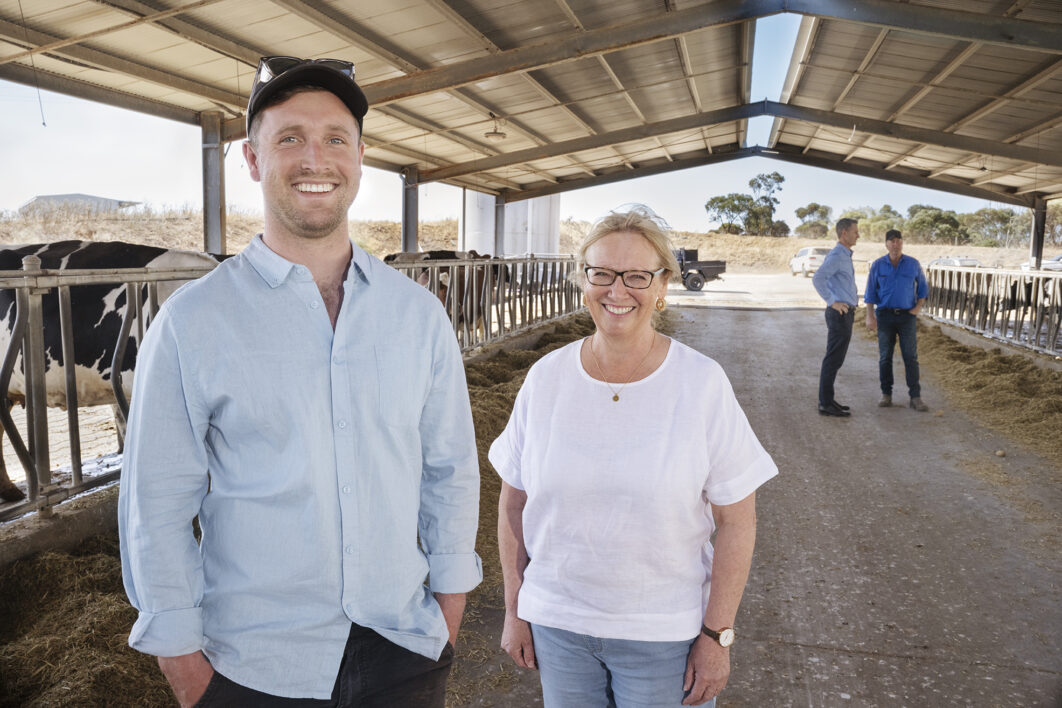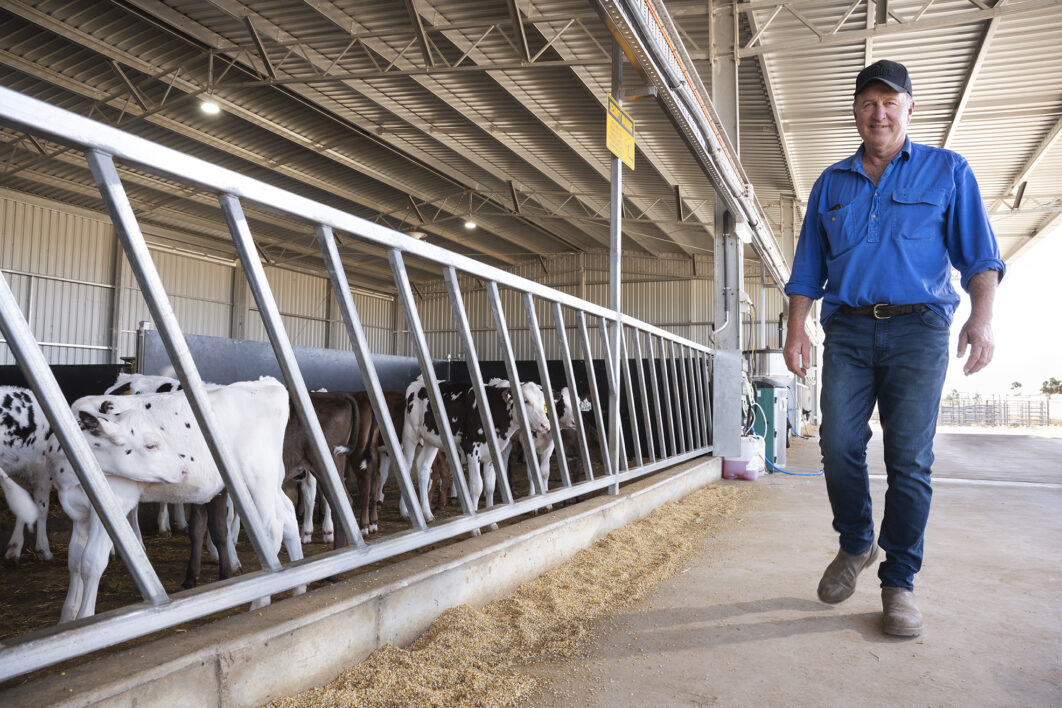Fifth-generation dairy farmer David Altmann, together with his wife Karen, switched to a total mixed ration (TMR) feeding system for their cows 18 years ago, which has led to greater efficiency and profitability at their Murray Bridge dairy.
David and Karen, who were named Best Innovative Farmers of the Year at the 2023 South Australian Dairy Awards, moved from David’s generational family dairy farm in Balhannah to a property in Murray Bridge in 1990.
They bought a second dairy in July 1999, about two kilometres away, which was initially managed by a share famer. In 2002, the Altmanns installed a new rotary dairy at the property, then moved to the new farm.
“We used consultants in California to help design the feed shed and we moved to a full TMR system in February 2006, where each cow is individually fed. We cut back to 500 cows and focused on getting the TMR system right. I really enjoyed it because I’ve always loved feeding cows,” David said.
“Then in 2014, we built one of the first compost barns in Australia, which was designed by the same Californian consultants.”
Many people questioned the move to the TMR feeding system. “Most people said we were going to go broke,” David said. “But I knew that if we did it well, we’d be successful. And I didn’t have a fear of spending money to feed cows, so that helped.”
David spent time researching TMR systems around the world and found it was used extensively and effectively by many dairy farmers internationally. “It was nothing new outside of Australia so I thought, there’s no reason we can’t do it,” he said.
“It appealed to me as I have total control. TMR systems take the weather and other elements out of the scenario. There has been a perception in Australia that you have to have cows grazing on grass to be a successful dairy farmer. But there are different ways of feeding and milking cows, and none of them are wrong. You’ve just got to do it well.”
Following their conversion to TMR in 2006, the Altmanns noticed a gradual improvement in their milk supply.
“The cows just got better and better – the production curve got better every month. We went into the feed shed in early 2006, and then by the first week of October 2006, we were milking three times a day,” David said.
“We were very fortunate to live on the outskirts of Murray Bridge, so labour was relatively easy to get for night milking. We’ve now got four full timers and six casual milkers.

“It’s a reasonably big team, but we don’t like our staff doing huge hours of work because they burn out. So as far as the permanent staff go, we keep them at around 45 hours a week.”
David and Karen grow a portion of their own fodder, and source fodder from four other regions.
“By diversifying our fodder supply, we reduce our risk of being low on food. The chances of missing out on fodder from every region at the same time is slim,” David said.
“And because the cows are fed the same every day, we get the same amount of milk every day, so our costs are set. Our milk supply is a very stable, flat production curve all year round, and the components are the same all year round, as the cow’s diet is consistent.”
David and Karen have made small improvements to the dairy over the years, including the introduction of cup removers and a teat scrubbing system.
“Teat scrubbing has been great, and our mastitis has dropped by 50%. Previously, we thought we had clean teats, but we were getting some infection prior to cupping the cows on, which we found by swabbing the teats. The teat scrub solution kills 95% of the bacteria before you cup the cow on,” David said.
“That was a game changer for us. It has enabled to sit with our cell count between 80 and 120 for most of the year.
“My mentality has always been doing the basics well and putting the cows first. We’ve had hundreds of people over the past 18 years come to see what we’re doing, and I always say, you’ve got to be a cow person to make TMR systems really tick properly.”
The Altmanns sell their milk to four different processors: La Vera, The Yoghurt Shop, Tweedvale and Bestons.
“We’ve diversified with our milk sales, as I’ve always felt dairy farmers should have more control over their markets,” David said.
“If you’re a grain farmer, a sheep farmer or a beef farmer, you get to choose when you sell your product, so we decided to take a little bit of control where we can.
“I think we’re in a pretty good position here in South Australia now. We’ve lost a lot of dairy farmers, which is heartbreaking, but those of us left are supplying a solid niche market here in SA, and the milk prices are healthy. We need to ensure milk prices stay high, as farmers need to be able to make money.”
The future looks bright for the Altmann family with their youngest son Jake now managing the farm.
“He went and got himself an electrical apprenticeship and spent four years becoming qualified, and then decided he wanted to come home,” David said. “He’s doing well – he’s driving the operation now, and that will enable me to step away. It’s time for a rest.”
